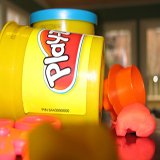Teenage Puberty Development -> 9 - 12 Years
A short course on how to play kid games and preteen puberty development stages
Teenage puberty is hitting children younger now than ever before. Children of this age (tween stage) develop a sense of self and find it important to gain social acceptance and experience achievement.
Friends become increasingly important. Secret codes, shared word meanings and made up languages, passwords and elaborate rituals are important ways to strengthen the bonds of friendship. Close friends are almost always of the same sex, although children in this age group are usually increasingly interested in peers of the opposite sex.
Here you will find a short course on how to play kid games and playthings listing the skills associated with play, appropriate playthings and what caregivers can do for 9 - 12 year old pre-teenagers and how to guide them through this very important developmental stages.
Ages and Stages of Child Development: 9 - 12 years
PHYSICAL & INTELLECTUAL:
- model kits,
- crafts,
- bicycles,
- rubber horseshoes,
- pogo sticks,
- ice and roller skates,
- grooming and housekeeping toys,
- rope,
- ladders,
- stilts,
- rackets,
- chemistry and other science kits,
- frisbees,
- magic sets,
- advanced construction sets and handicraft kits,
- toy models,
- puzzles,
- basketball equipment,
- building sets,
- jigsaw puzzles,
- books,
- tool benches,
- computers
SOCIAL:
Other Ages and Stages of Child Development
- card and board games,
- checkers and chess,
- table tennis and billiards,
- sport toys and games,
- bats,
- balls,
- team sports
CREATIVE PROBLEM SOLVING:
- puppets and marionettes,
- drawing sets,
- workshop tools,
- costumes,
- action and career dolls
EXPLORATION:
- compasses,
- magnifying glasses,
- microscopes and telescopes,
- magnets,
- bicycles
What caregivers can do to promote play in kid games and during teenage puberty:
- Play skill games.
- Be a referee.
- Pose riddles.
- Teach magic tricks.
- Indulge in nonsense.
- Play vehicle games. Ride together on bicycles.
- Jump rope together. Build things together. Improvise exaggerated characters.
- Play guessing games.
- Play make-believe, like going shopping or building something.
- Encourage hobbies such as stamp, rock, or coin collecting.
- Ask questions.
- Play sports.
- Call attention to qualities, similarities, and differences.
- Read to the children.
- Be flexible.
- Do science projects
- Grow things - flowers, vegetables.
Be prepared to use all your "patience" skills if caring for children of teenage puberty age, as they tend to think that they do not need any adult care or supervision. Yet, when they are left to care for themselves, they are lonely, unhappy, and sometimes frightened. At this stage teenage depression can easily develop.
Read some more articles on how to raise smart kids.
Find It!
Can't remember where you read something specific? Just type in your search term in the box below and your specific topic will be returned to you instantly.









